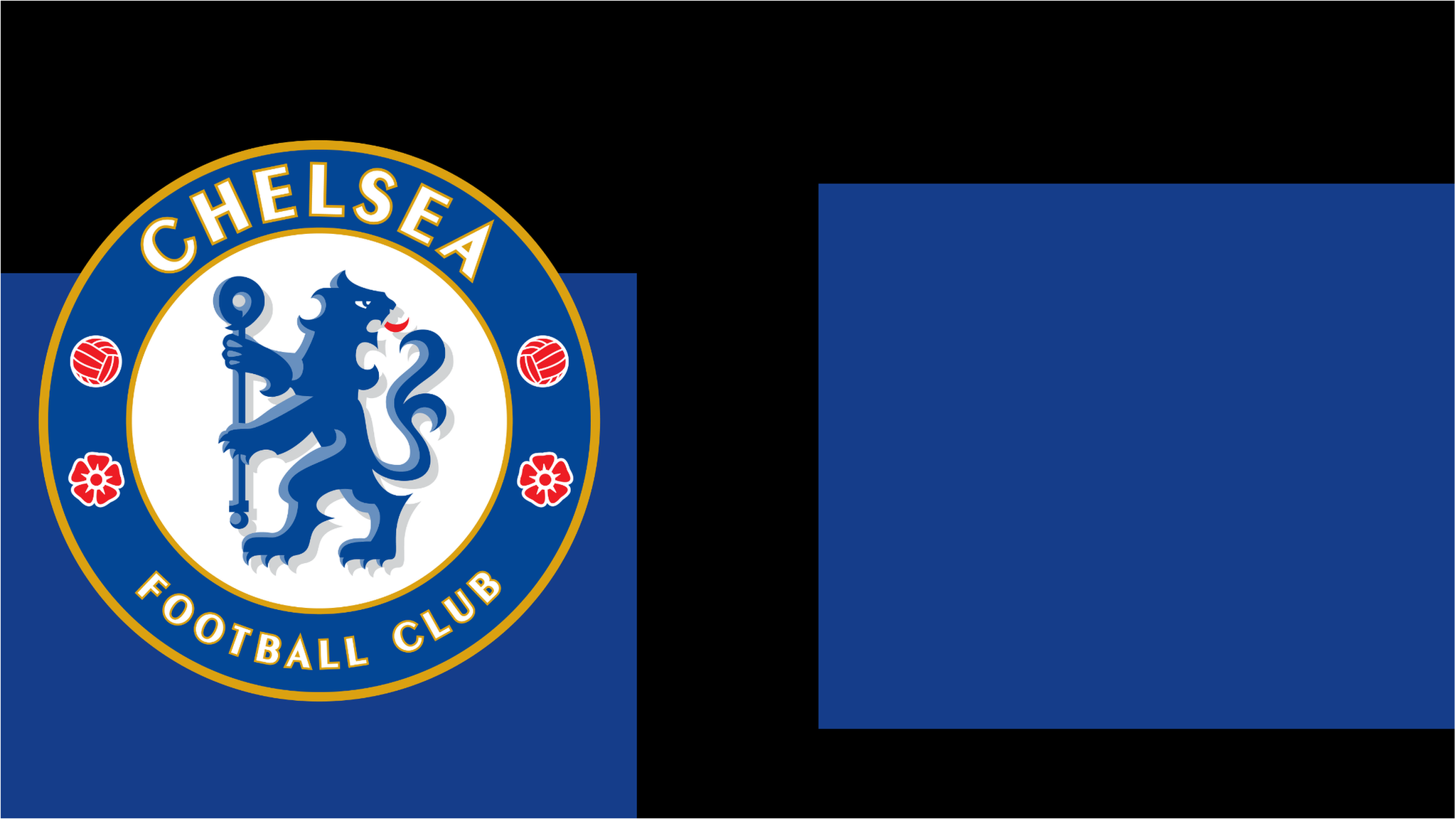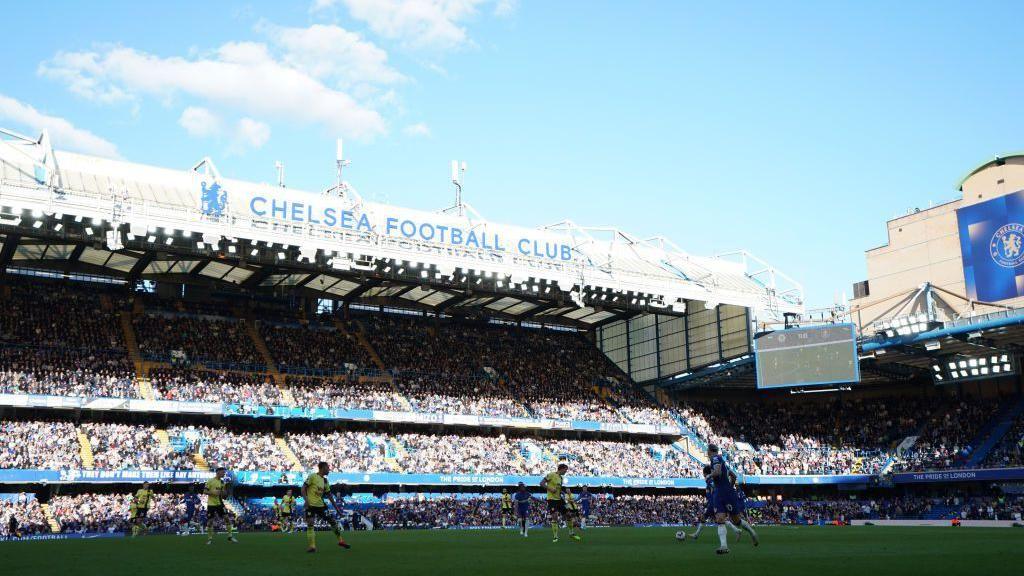Chelsea ownership rift exposed and explained
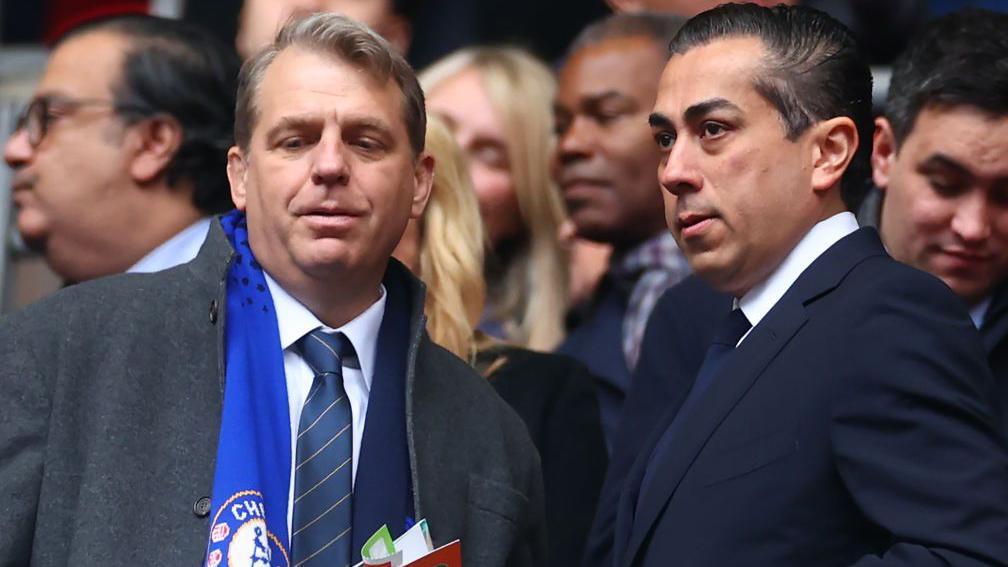
Todd Boehly and Behdad Eghbali are the two key figures involved in Chelsea's uneasy co-ownership
- Published
Chelsea have two owners wanting to buy each other out. Neither wants to sell, amid a rift at the heart of the club.
In one corner is Todd Boehly, often mischaracterised as the main man and decision-maker of the ownership, mainly because he had a very public-facing role when Chelsea was taken over and made outlandish public comments, including the proposal of a Premier League all-star game.
Boehly, who also owns the LA Dodgers baseball team, was first revealed in a Bloomberg report last week to want to buy out his rivals at Clearlake Capital.
Despite his frontman profile, Boehly is a minority investor and has only a 12.8% stake - the same as allies and fellow billionaires Mark Walter and Hansjorg Wyss, which limits his power to force the issue.
In the other corner is Behdad Eghbali, who is really the most active and powerful figure at Stamford Bridge, as co-founder of private equity firm Clearlake, the company which owns a majority 61.5% stake in the club.
He is aligned with fellow Clearlake co-founder Jose E Feliciano as powerful figures who are adamant that they do not want to sell and are only looking to increase their stake.
They are willing to be patient while in control of Chelsea, while Boehly is believed to want a resolution within the next two months.
This ownership group - thrust together in order to buy Chelsea after sanctions were placed on former owner Roman Abramovich by the UK government because of Russia's invasion of Ukraine - is now fractured into two clear camps.
In truth, the issues with the Boehly and Clearlake co-ownership have been suspected in football circles for some time.
But, with the awkward truth now laid bare, the question of how a group which invested £2.5bn to buy the club, while committing a further £1.75bn in spending, resolves this stand-off now comes into sharper focus
A Game of Thrones power struggle
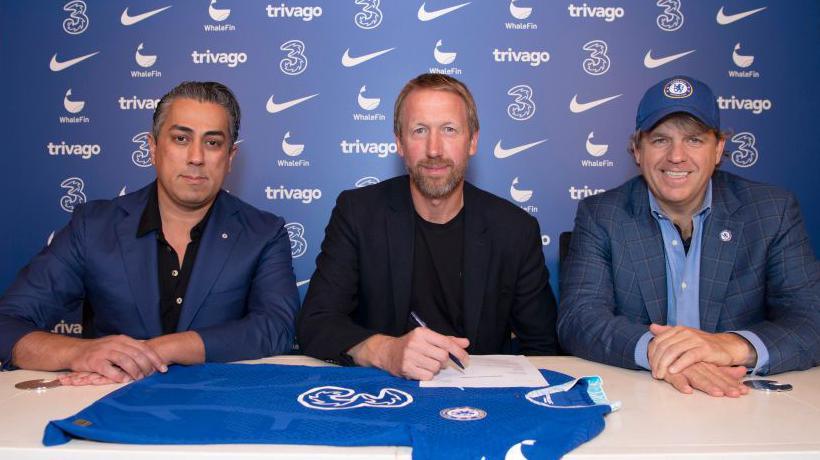
Eghbali (left) and Boehly (right) with former manager Graham Potter, who was sacked seven months later
This Game of Thrones-like situation throws back to early 2022 when Abramovich was forced to sell Chelsea rapidly.
Boehly earned fame through the bidding process, was made chairman until 2027 and appointed himself interim sporting director.
In a dramatic, chaotic start to the ownership Chelsea spent big, signing Raheem Sterling, Wesley Fofana, Marc Cucurella, Kalidou Koulibaly and Pierre Emerick Aubameyang in a £255m spend under Boehly's initial leadership.
Thomas Tuchel was then sacked and replaced by Graham Potter in September 2022 after a joint-review from both sides of the ownership 100 days into their tenure. But that call was ultimately led by Boehly, with Potter lined up as the replacement before Tuchel was sacked.
When Boehly stepped down as sporting director in January 2023 - to be replaced by former Brighton duo Paul Winstanley and Laurence Stewart - Eghbali began gaining control.
He involved himself in deals to sign Mykhailo Mudryk for £89m and Enzo Fernandez for £107m in a record £320m January transfer window.
The divide began to grow around the end of the 2022-23 season, when Chelsea finished 12th, their worst finish in the Premier League era. Boehly entered the dressing room to give a public dressing down to the squad following the defeat by Brighton.
Sterling is believed to have taken the brunt of his criticism, and Boehly took a step back from day-to-day running of the club.
Eghbali assumed more control in the following months, although the decision to appoint Mauricio Pochettino as manager was made by both owners, alongside the co-sporting directors.
The Pochettino divide
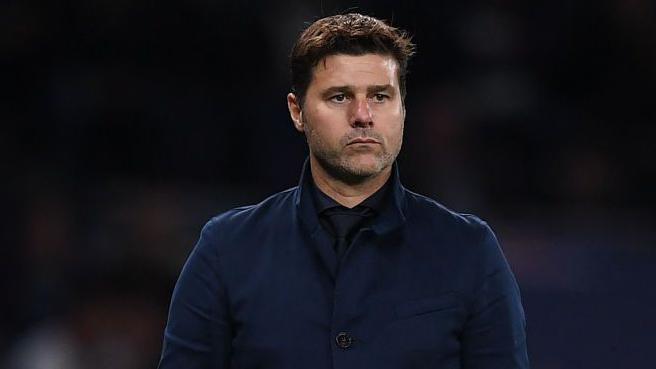
Chelsea sacked Mauricio Pochettino in May after less than a year in charge
Those aligned with Boehly on the club's board also continued to back Pochettino after a strong finish to the 2023-24 season as they finished sixth in the league despite an inconsistent campaign.
But, to the surprise of many outside the Chelsea boardroom, Eghbali and the club's sporting directors completed a two-day review, after which the popular Argentine left by mutual consent on 21 May.
In an interview at a Sportico conference two weeks earlier, Boehly had been asked about Pochettino’s future and replied: "The number one thing is you have got to be patient.
"You are putting something together and expecting it to come together really quickly, but the reality is anything really good takes a little bit (of) time. Patience was always a thought for us."
Boehly and Pochettino had dinner together on 17 May. However, Eghbali and his sporting directors were readying for a post-season review which ultimately led to a change of manager.
There was a lack of shared vision between Eghbali, Winstanley and Laurence with Pochettino about future transfer strategy, playing style and the building of a new set-piece department - and an exit by 'mutual consent' was agreed upon.
On a wider point, under the current co-ownership, Chelsea have spent more than £1.5bn on transfers in five windows as almost every senior player from the Abramovich era has left or been sold, alongside the majority from the first Boehly-controlled window in 2022.
That chaotic pace of change has been felt by players and first-team staff alike.
Figures within Clearlake insist that will now slow down as they back new manager Enzo Maresca with a five-year deal and believe him to be aligned with their, and the sporting directors', vision.
Of course, much hinges on his success, but some early signs are positive as Chelsea target Champions League qualification in this new 2024-25 campaign.
Boehly still made his presence felt in the same directors' box as Eghbali when Chelsea lost 2-0 to Manchester City in the opening Premier League match of the season.
Chelsea co-owners looking to buy each other out
- Published7 September 2024
Where are we now?
The gradual worsening of relations has been described as a "culture clash" rather than a major blow-up.
There are complaints from sources on one side that Eghbali is too involved on the football side of the operation on a day-to-day basis and needs to leave the experts to do their job.
But Clearlake insists that he only helps on the financial side of deals and allows analysts and sporting directors to lead.
Boehly's camp would point to his hands-off approach at the successful LA Dodgers in baseball, where he was not involved in the sporting operation.
In truth, both owners are somewhat culpable for what has, at times, become an oversized squad, having lurched between different transfer strategies in a relatively short period.
On the positive side, Chelsea say they have modernised the medical and recruitment departments, with work on the academy and training ground to begin soon.
Newly promoted club president Jason Gannon has taken the lead on the stadium project from board member Jonathan Goldstein, CEO of Boehly's investment firm Cain International.
Although Goldstein remains involved, the accomplished Gannon, who has experience working as managing director of SoFi Stadium in Los Angeles, is in charge. Architect Janet Marie Smith, who continues to work with Boehly on Dodger Stadium, has left, with Populous now advising on design possibilities.
However, the ownership issues and change in senior executive staff has significantly slowed work on ground redevelopment or a move to a new stadium, with the aim of expanding the 40,000-seater Stamford Bridge by 2030 now in doubt.
It has also been a factor in no front-of-shirt sponsorship deal being secured for the start of the second season in a row.
Yet the women's team, which have had less intervention from the owners, remain a success as they seek a minority investor to buy into that side of the club, which has split from the first team.
Sources inside the men's first team insist the public ownership spat will not undermine performances on the pitch, while the women's team say they have never been impacted.
When and how is this resolved?
There are four possible outcomes:
Boehly buys Clearlake's stake.
Clearlake buys out Boehly and company.
A stalemate where an unhappy alliance continues or issues are partly resolved.
A third party gets involved.
However, this is far more complicated than just two 'warring parties'.
Both Boehly and Clearlake have veto power over an array of major decisions, including the sales of shares to third parties.
As majority investors, Clearlake appears to have the upper hand, but Boehly could bank on Eghbali and Feliciano being answerable to shareholders should an offer come in that tempts them.
All available evidence suggests Boehly may make a speculative bid to buy shares from Clearlake to test the waters - and any bid would help set a valuation of the club, which is expected to increase from the £2.5bn when it was bought.
Amid such high stakes financially, both sides privately accuse the other of posturing.
Boehly has had a long-held plan to buy a Premier League team after first exploring the chance to buy Tottenham before the 2020 Covid pandemic, while Eghbali's daily involvement displays his passion for the Chelsea project.
This eruption around the ownership situation will ultimately be solved off the pitch, with money deciding the outcome through the banks and the boardroom.
Related topics
- Published26 July 2022
